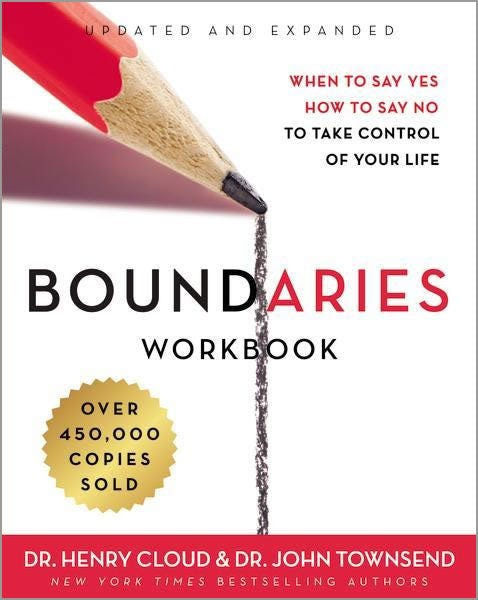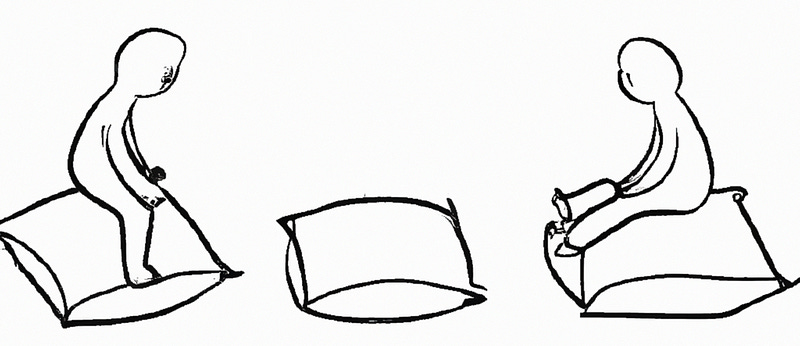Breakups as protection of boundaries
What are boundaries and why do we need them? Breakups as a means to protect your boundaries. How boundaries prevent you from sliding back.
After my first breakup, I began practicing setting boundaries consistently. I had previously misunderstood love as complete surrender and accepting my partner as they were. However, I came to realize that this “unconditional” love had consumed my needs and eroded my sense of self. As a result, in addition to grieving the loss of the relationship, I also grieved for the loss of myself after my first breakup. To summarize my learning, this post contains three parts:
What are boundaries and why do we need them?
Breakups as a means to protect your boundaries.
How boundaries prevent you from sliding back into a bad relationship.

What are boundaries and why do we need them?
When discussing boundaries in a relationship, I find an analogy particularly helpful. Imagine that there are three pillows: you stand on the right one, your partner stands on the left, and you both share the middle one to symbolize the unity of your love. However, you never step on each other’s pillows.
In the book “Boundaries” by Henry Cloud, I learned more about boundaries in relationships. I strongly recommend this book to learn more about what are boundaries and how to establish them. Here are the summarized principles in the book for boundaries:
1. The ability to be emotionally attached to others, yet without giving up a sense of self and one‘s freedom to be apart.
2. The ability to say appropriate no’s to others without fear of loss of love.
3. The ability to take appropriate no’s from others without withdrawing emotionally.
To practice establishing boundaries, I consistently wrote down in my weekly reflection throughout one entire semester last year on this question: Action that you practice prioritizing yourself or establishing boundaries? For instance, postpone or say no to social invitations, do not allow anyone to intrude on my quiet time, and insist on not doing extra work.

Throughout the process, I learned that boundaries mean having complete freedom but holding myself completely responsible for the things within the boundaries without interference from others. It also means not interfering with others’ boundaries to prevent me from overworking and taking away people’s chances of learning. This is because you only have the power to change yourself, not others. Therefore, if you ask the person to change, you are giving away the power for the other person to control you. In my first relationship, I realized I had been too eager to resolve my ex’s problems, but this only prevented her from learning and eventually overworked me, leading to burnout and resentment.
Breakups as protection of boundaries
The latest relationship is a test of how well I understand and practice boundaries. I didn’t try to take on my second ex’s problems in her life but instead keep my distance when those problems started to affect our relationship.
I have also established a single exit criterion for my relationships: I do not want to be with someone who makes me into a person whom I dislike. This is the strongest and most fundamental boundary in my life.
This is the story of how I left a relationship to protect my boundaries. After my ex told me that she didn’t love me enough, didn’t want a stable relationship, and didn’t know what she wants, I knew that my non-negotiable boundaries had been crossed. I was devastated but still had hope. We haven’t broken up, but our relationship is increasingly awkward and unlabeled. I was frustrated every day.
One night, a week after that devastating call, I went to bachata dancing. A random girl hit on me and asked, “Do you have a girlfriend?”
I stumbled because I didn’t know if my relationship still counted and felt triggered by all the problems I was handling in the relationship.
“Ahhhh….huh…ahhh…I’m not sure,” I said.
“Would you be interested in having one?” she followed up.
I felt like a fishbone was stuck in my throat.
“Can I give you a kiss on your cheek?” she asked.
I agreed, and she gave me a very sensual kiss.
My mind was blown like a hurricane. I felt confused about the moral ambiguity of being kissed, ashamed for not being able to respond with “Do you have a girlfriend?”, triggered by the realization that my relationship crisis has crept into other parts of my life, and angry that I felt so small instead of feeling attractive when people are hitting on me. At that moment, I realized that the one and only response my heart wanted to give was “Yes, I do have a girlfriend,” so I could avoid further interrogation.
Why do I appear as a girl with big relationship issues that she cannot resolve herself? I love my girlfriend wholeheartedly and am willing to sacrifice whatever I have for her. I am willing to buy a ticket and fly to wherever she is the next day if she needs me. I am extremely loyal to my friendships, let alone my romantic partner. I know what I want and who I am. However, that day, that was the version of myself that I was presenting.
When I realized that I hated this version of myself so much, I ended the relationship the very next day. No one on this planet can change me into who I dislike.
How boundaries prevent me from slipping back into my relationship
Even today, I sometimes think about going back to that emotional time. However, I resist this urge by relying on my principles, boundaries, and criteria. If I question one of my reasons for the breakup, other boundaries function like supporting pillars that hold my heart. For example, when I tell myself that I should have tried harder to resolve our problems, I remind myself that she didn’t love me enough and I deserve someone who loves me wholeheartedly. Therefore, there was no point in trying again.
I see all my boundaries as a nested spiderweb: even if one breaks or weakens at some point, the others still support the weight of my decisions. Boundaries allow me to continue feeling love towards my ex while understanding that I will no longer go back and violate my own boundaries.
This is the 15th post from my 30-day writing challenges. I was inspired by Tung Nguyen, a friend who is a famous blogger. He overcame the fear of creation through mass-producing blogs and eventually found his own niche audiences.


